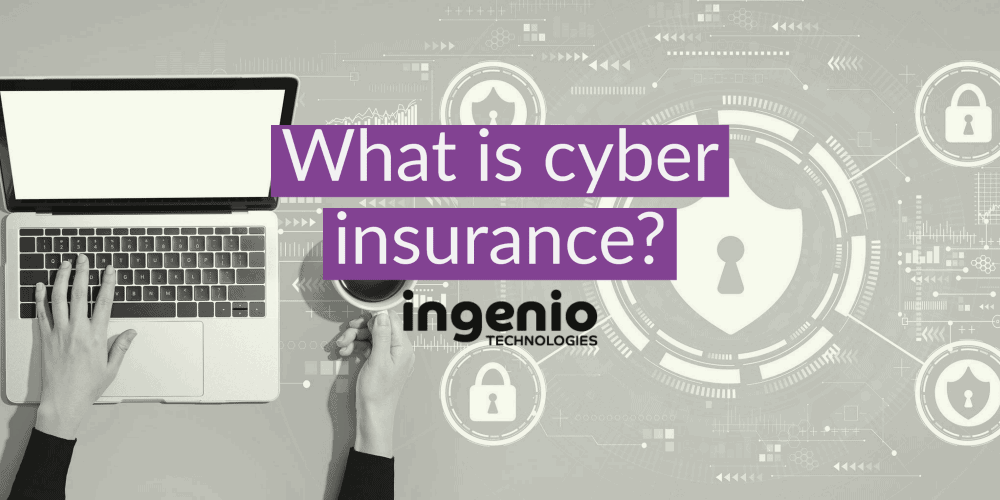Insurance provides you with the peace of mind that in the event of an unfortunate event, you are covered and guaranteed compensation against that specified damage/loss. I’m sure you already have a lot of insurance in place protecting different areas of your business, one of which should be cyber insurance.
If your business is attacked by cyber criminals and they cause damage and/or steal information from your network, ensuring you have the right protection in place is critical to enable to get your business back up and running. Cyber insurance will play a valuable part in recovering your business by providing funds for you to remediate any issues.
Why do you need cyber insurance?
As technology advances, so does the rate of malicious cyber attacks on businesses. One in five businesses and charities say they experienced a direct negative consequence due to a cyber attack. A data breach is not cheap, it costs a business on average £19,400 – without the guarantee of actually getting that data back.
Depending on the level and type of insurance, if you were unfortunate enough to be targeted by a hacker, providing you have taken the necessary steps to protect your business from a cyber attack you will be covered for the data loss and damage to your IT systems and infrastructure.
As the threats of cyber attacks have increased over the years, cyber insurance is now becoming more of a necessity. With the changing threat landscape, cyber insurance has had to adapt and there are now more questions asked about how you protect your business from cyber attacks.
Types of cyber insurance
There are two types of insurance, first party and third party, both cover different types of risks – let’s take a look at these now:
First-party cyber insurance
This type of insurance will protect you if your own business network is breached. The insurance will assist your business with the following:
- Money or electronics theft
- Reimbursing your business for the cost of network downtime from interruption
- Notifying customers about the data exposure
- Investigating the cause of the data breach
Third-party cyber insurance
If a third company you work with gets a data breach on their network, your business is covered with this type of insurance. The company that receives the data breach could file a lawsuit over the incident, they will name every business they’ve worked with and an investigation will take place.
Third-party insurance is therefore essential for the protection of the following:
- The investigation of the security breaches, defence costs, and civil damages associated with them
- Loss of third-party data – including payment of compensation to customer and the failure of software or system
Where to buy cyber insurance?
There are many different types of cyber insurance out there, it would be worth asking whoever provides your other insurances, for example, your insurance broker, as they will be able to advise on what is right for your business.
Preventing a cyber attack
It’s essential to have cyber insurance in the event of a cyber attack, but there are still complications that will occur, even with the insurance in place. The fact your business has been subject to a cyber attack would not only damage your reputation but may impact the trust from your existing clients and any future potential clients.
Reducing your risk/preventing a cyber attack is something that you need to really consider. Ask yourself how much security does your business currently have? If you don’t have the basics in place, your cyber insurance is not going to help you if all goes wrong. Cyber insurance is necessary after the event, but like all insurance, you never actually want to have to use it.
It can be difficult to know how much your business needs to keep it secure, take a look at this previous blog we wrote and learn the answers.
Alternately, contact our cyber security experts who can help you discover more about cyber insurance and what your business needs to keep it safe – call 01273 806211 or email [email protected]


